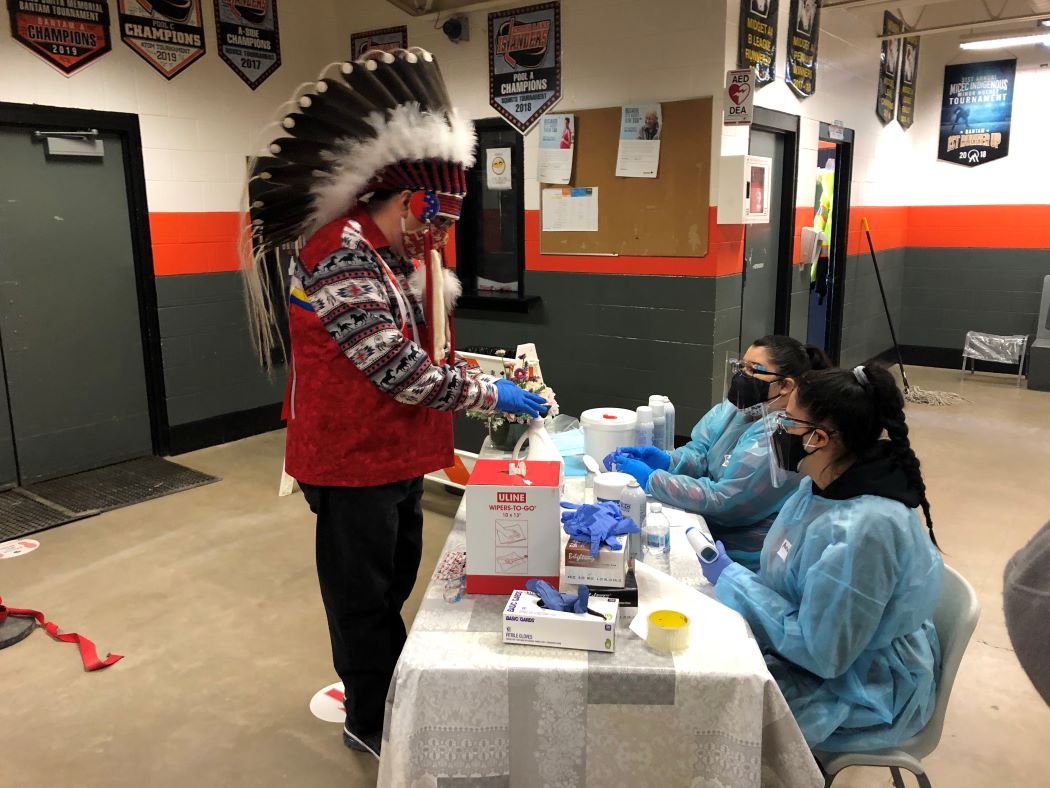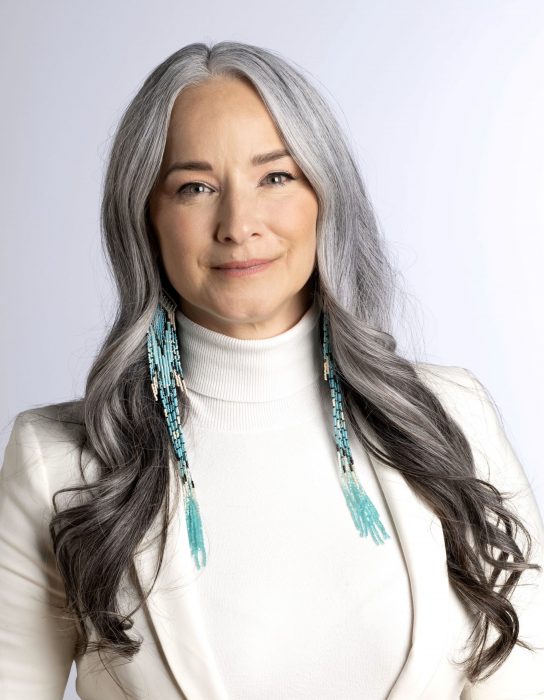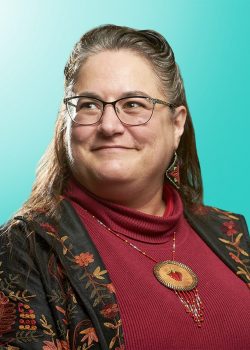
Chief David Monias of Pimicikamak Cree Nation checks in to be vaccinated against COVID-19 in 2021. Ongomiizwin described the rollout of vaccines to First Nations in Manitoba as an example of health-care partnership with communities in the spirit of reconciliation.
Indigenous health research symposium to explore ‘Reconciliation in Research’
The 11th annual Indigenous Health Research Symposium at UM, taking place Nov. 28 and 29 on the Bannatyne campus, is exploring the theme “Reconciliation in Research.”
“We have invited our attendees to consider how their research can meaningfully contribute to the goals for reconciliation as outlined in the Truth and Reconciliation Commission’s Calls to Action,” says Dr. Linda Diffey, an organizer of the symposium who has been involved since its inaugural year.
While it’s important for researchers to work with community partners to shed light on the significant health gap between Indigenous peoples and the general Canadian population, the work can’t stop there, says Diffey, an assistant professor and Indigenous scholar in community health sciences who is a member of Peepeekisis Cree Nation.
“We need to work in partnership with First Nations, Métis and Inuit communities to close this gap and support their work to realize self-determination and sovereignty in health and health care.”
This year’s symposium is returning to an in-person format after being held virtually during the pandemic. The annual gathering is hosted by Ongomiizwin – Research, part of the Indigenous Institute of Health and Healing in the Rady Faculty of Health Sciences.
The symposium is free. All are welcome to register in person on the Joe Doupe Concourse in the Basic Medical Sciences Building.
The event offers Elders, community members, students, researchers and representatives of Indigenous organizations the opportunity to share knowledge while renewing and strengthening relationships.
“Relationships are central to our work, and our symposium has always been a great space to connect and get inspiration from others,” Diffey says.
Researchers will present their studies related to First Nations, Métis and Inuit health, with time allotted for questions.
Topics range from barriers to equitable cancer care experienced by Red River Métis, to Indigenous fathers and the child welfare system, to Indigenous co-leadership in kidney research.
There are also two panel discussions on the topics “Supporting our relatives with addictions in pregnancy” and “Exploring a sugar-sweetened beverage tax among Indigenous populations using a decolonizing lens.”
The full schedule is available here.
Here’s a look at the two keynote presentations:
 TUESDAY, NOV. 28, 2023
TUESDAY, NOV. 28, 2023
9:30–10:15 a.m., Theatre B, Basic Medical Sciences Building
Keynote Speaker: Nahanni Fontaine, Manitoba minister of families, minister responsible for accessibility and minister responsible for gender equity
A Status Ojibway from the Sagkeeng Anishinaabe First Nation, Fontaine holds a master of arts from UM in native studies, women’s studies and critical theory. She is often called upon to speak about the historical and contemporary context of Indigenous women and girls in Canada, Indigenous human rights and empowerment, and the imperative for racial and gender representation in politics.
 WEDNESDAY, NOV. 29, 2023
WEDNESDAY, NOV. 29, 2023
9:00–10:30 a.m., Room 071, Apotex Building
Keynote Speaker: Dr. Cary Miller, UM associate vice-president (Indigenous) scholarship, research and curriculum
Miller, associate professor of Indigenous studies at UM, is a Sixties Scoop survivor and descendant from the St. Croix and Leech Lake Anishinaabe communities in Minnesota. She received her master’s and doctoral degrees from the University of North Carolina. She is committed to advancing decolonization and anti-racism policies and procedures at UM.
With Dr. Lara Rosenoff Gauvin, assistant professor of anthropology at UM, and Pahan Pte San Win, a Lakota, Cree and Métis counselling therapist, Pipe Carrier, Ceremonial Leader and Sundancer, Miller will give a presentation titled Truth and Atonement at the University of Manitoba: The Respectful Rematriation and Repatriation Ceremony.






